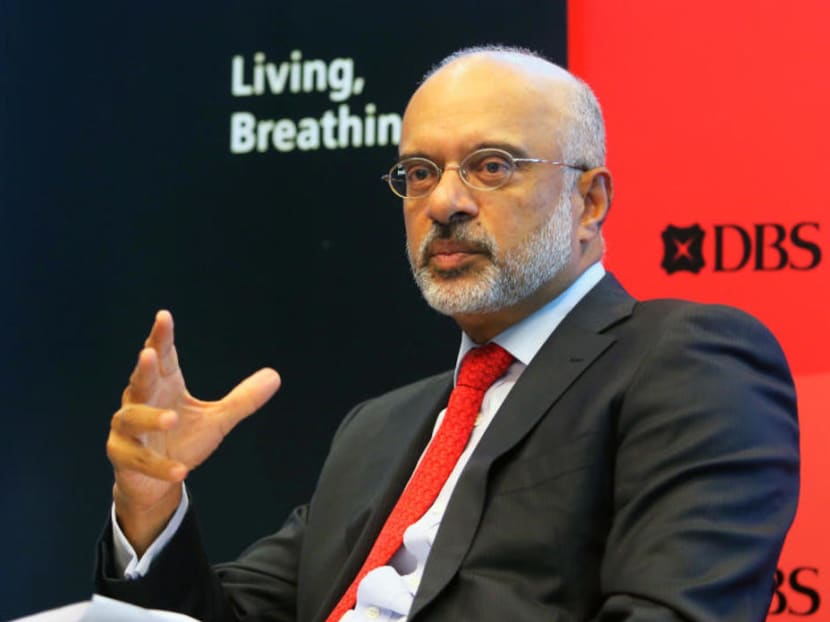Iswaran rebukes NCMP Leong Mun Wai for comments on DBS CEO not being ‘homegrown’
SINGAPORE — The debate over the issue of foreign talent in Singapore continued in Parliament on Friday (Sept 4), with Minister for Communications and Information S Iswaran chiding Non-Constituency Member of Parliament (NCMP) Leong Mun Wai for his comments on DBS bank not having a “homegrown” chief executive officer.

DBS’ current chief, Mr Piyush Gupta (pictured), was born in India and became a Singapore citizen in 2009, the same year he was appointed the bank’s CEO.
SINGAPORE — The debate over the issue of foreign talent in Singapore continued in Parliament on Friday (Sept 4) with Minister for Communications and Information S Iswaran chiding Non-Constituency Member of Parliament (NCMP) Leong Mun Wai for his comments on DBS bank not having a “homegrown” chief executive officer.
Mr Leong, who is from the Progress Singapore Party, had said in his debut speech in Parliament on Tuesday that he is “deeply disappointed” that DBS still has not appointed a homegrown CEO 22 years after former JP Morgan executive John Olds was placed in the position in 1998.
Mr Piyush Gupta, who is the bank's chief now, was born in India and became a Singapore citizen in 2009, the same year he was appointed CEO.
On Friday, Mr Iswaran laid out in his speech why it is important for Singapore to remain open in order to create jobs and opportunities for Singaporeans.
He also singled out Mr Leong, saying that he was “troubled” by the NCMP’s comments and warned fellow MPs about going down the path of clamouring for “homegrown” talent to head companies here.
“By all means, let us passionately argue the case to do more for Singaporeans,” Mr Iswaran said. “But, as parliamentarians, let us also be careful about what our words convey”.
Transport Minister Ong Ye Kung also weighed in on the issue, reiterating points he made in his speech earlier this week that bringing in foreign expertise is, and has always been, vital to the process of grooming the domestic workforce.
He then cautioned that the country should not reach a stage where it sets rules and quotas — for example, that the heads of companies must be born in Singapore — when grooming Singapore employees to take up senior positions.
“I think that would be the wrong approach,” Mr Ong said.
However, Mr Leong remained firm that the Government should have “put in certain safeguards… to ensure that Singaporeans will be groomed to take over (senior positions)”.
He also questioned Mr Iswaran if raising such issues goes against the spirit of debate in Parliament.
In response, Mr Iswaran said that the issue does not lie with the process of debating and reviewing policy. He asserted that government policies have always been aligned with the economic environment and the needs and concerns of Singaporeans.
Instead, he took aim at the sentiment expressed by Mr Leong that a Singaporean holding a certain position in a Singapore company can be deemed not “homegrown” because the individual was not born here.
“I am not sure what you mean by ‘homegrown’,” Mr Iswaran said, adding that MPs should ask themselves what is the message being sent out to Singaporeans when making such statements.
“Because what we say cannot be unsaid… And everyone — Singaporeans, new citizens, Singapore-born, others who are here — will all be looking at this.
“And I think we in this House as elected representatives must hold ourselves up to a higher standard,” he said.








